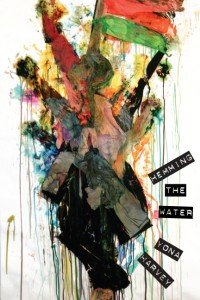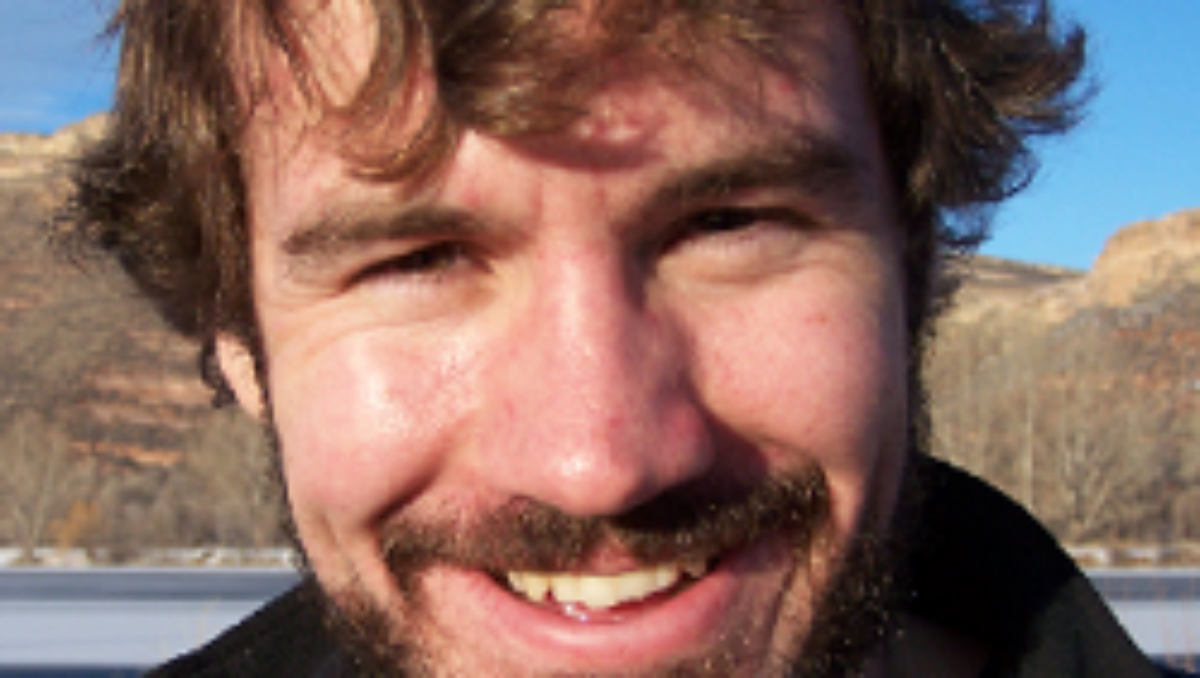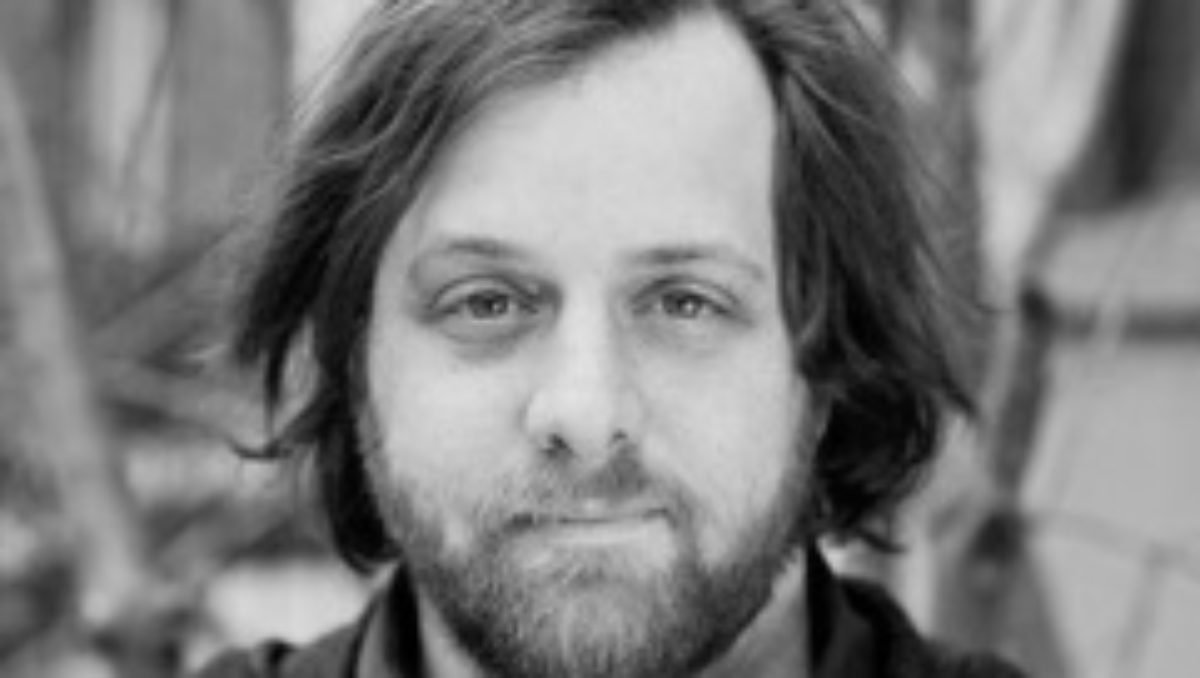shows on homepage
Two Poems by Yona Harvey
GINGIVITIS, NOTES ON FEAR
I hesitate invoking that doubled emptiness: open—
my daughter’s mouth in the bathroom mirror—
not her first vanity but first blood inkling
she tastes & smoothes with her tongue. She turns
her chin this way & that, anticipating her future: new
bones replacing the fallen. If the body survives,
it repairs itself: two pillars—wider, stronger
forming new words: adolescent declarations
brushing past seasoned gums
What is the tongue- span
between trauma & terror?
Incident & accident?
Think on these things.
There is so much to fear. How will we fear it all?
& now my second-born, my son: If I don’t
brush, he says, a disease will attack my gums.
When God says, “Meet me tomorrow
at the corner of Seventh Day & Salvation
just as the sun before nightfall strikes
the fender of a red hatchback parked
outside Worldwide Washateria,” you
wait there
fitted in a dress the color of cloud-cover
& hold a feathered hat
to your delicate hair, newly picked &
haloed with a small brim. &
like a fleck of Antique Black in a gallon
of European White, you make everything
around you
more
like itself, which means you
appear
more
eloquently than the lampposts
boasting their specters of light,
or the woman
clutching her daughter’s shirt
above a basket, the sedative twilight
of the gods trapped momentarily
in the pane, which separate
the woman
& you
steadfast against the wind picking up,
the men desiring your attention,
the traffic held
in the ceaseless straight ahead.
Concrete barriers, a few
lopsided cones, abiding
highway hieroglyphs
are all that separate
onward & stalled, here & gone.
Not even this poem
can move you, or change
the motion of your scarf—
that furious red flag—
or the stilts—your legs.
Your lips
don’t move—you
do not mutter or
complain or ask directions.
Why don’t you?
Your autograph haunts
the covers of books
across town:
I know who I am I know who I am I know who I am
You,
Black-winged bird,
you’ve become
lyrics layering air:
1—
Describe the sound of His voice.
2—
To walk the black, wired bars
3—
is to follow a sound
1—
so peculiar you
2—
hardly notice
3—
the ink gone out.
1—
2- 3- 1- 2- 3- 1- 2- 3- 1-
Your stilts on the ground.
|
Channeling the collection’s muse—jazz composer and pianist Mary Lou Williams—Hemming the Water speaks to the futility of trying to mend or straighten a life that is constantly changing. Here the spiritual and the secular comingle in a “Fierce fragmentation, lonely tune.” Often mimicking fairy tales or ancient fables, Yona Harvey inhabits, challenges, and explores the many facets of the female self—as daughter, mother, sister, wife, and artist—both on a personal level (“To describe my body walking I must go back / to my mother’s body walking”) and on a cultural level (“A woman weighs the price of beauty—”). |
- Published in Featured Poetry, home, Poetry, Series
Foul Mouth by Devin Murphy
For the last hundred miles, Brooks’ ten-year-old son, Adler, had been yelling profanities out the window. It started during a break from driving. To stretch their legs they jogged down a rural road along the wire fence separating the pavement from endless rolling hills of grazing land. The red-hued cattle saw them coming and turned parallel to the road, their stampede kicking up a billowing cloud.
Adler kept chasing them. “Stupid cows,” he yelled, as they dashed in the direction he was going, never doubling back or turning away from the road, where they’d be free of him. It was only when Brooks got tired, over a mile from the car, that he had the boy turn back.
“Can you believe that,” Adler said, walking backwards so that he could keep taunting the cattle. “Dumb Cows.” Then he sucked in his breath and bellowed, “Asshole cows!” while eyeing his father to gauge his reaction. When there was none, he yelled it again. “Asshole Cows!”
Back in the car and driving with his window down, Adler screamed into the wind, emptying every cuss word he knew at the animals. Brooks didn’t interfere. He hoped bringing the boy to open, wild places would help him purge whatever anger was knotted up inside of him, and if this was the sound of that happening, he was okay with it.
“Look at that candy-ass, schmuck of a baby cow,” Adler said as they passed a Black Angus calf that had somehow gotten through the fence and was separated from its braying mother. Adler undid his seatbelt and reared around so he was propped on his knees, looking out the rear window of the car. “I think we should help that one.”
This was in western Idaho. That day alone they’d passed hundreds of miles of rolling landscape sectioned off by barb wire into pastures full of Black Angus and Indian ponies, and as they had no real schedule, no time frame, Brooks did a U-turn and pulled onto the side of the road. When he cut the engine and heard the sad bleating of the mother cow, he imagined himself silently lifting the calf over the fence and seeing the look of understanding and pride on Adler’s face.
The shoulder of the road dipped down a twenty foot embankment that Brooks had to jog to keep from falling. At the bottom of the slope he realized how wrong he’d been about the size of the calf. It must have weighed several hundred pounds. Seeing Brooks dash toward it down the incline, it tried to force itself back through the wire. The barbs bit into the fat part of its hind leg and tore back some of the skin. The calf spit out a terrible Muurrrr. Mawwww. When its mother stepped closer, Brooks saw that she was easily a foot taller than he was, and he leapt back. But the calf was stuck. Its struggling moved the wire up and down like a jigsaw blade, and the pink gashes in its body widened as it writhed. Muurrrr. Mawwww. Brooks stood back up and reached for its leg to pull it loose.
“Push that son-of-a-bitch through!” Adler yelled from the road.
Brooks stepped forward and planted the sole of his sneaker against the flailing calf’s leg. He booted it through, tearing its skin worse, but freeing it back into the pasture. The mother ran to it and they both trotted away. Brooks studied the tufts of bloody skin and black fur shaking on the barbs. The calf had probably stepped through the wire easily enough, and would have found its own way back had he not scared it. He felt foolish, and hoped Adler hadn’t seen the cuts.
“That was smooth,” said Adler as Brooks climbed back up to the road, but he didn’t look to see if his son was serious or mocking and he didn’t want to know. A familiar wave of uneasiness appeared to descend upon him from the vast blue sky. His mind went numb except for some hot, dark presence in that corner that he tried to avoid, the corner from which emanated his sad, mealy-mouthed self-doubt.
They got back into the car and kept traveling, west by northwest, the way they’d been for the last three weeks, slowly finding crooked back roads to lead them across country. Brooks tried to shake the fear such wilderness raised in him and to remember that he’d wanted this—a chance to give Adler the wonder, the essential miracle of the world. This was the opposite of where he came from. In Illinois, where his marriage had imploded, he had ached for wild places, for some geographical feature to make him feel peaceful and humble, opposed to the traffic in his suburb, which made him feel frantic and small. For a long time Brooks did not say anything.
Then Adler pointed out the window to a river that cut a serpentine path through the wilds. “Dad, God damn, will you look at that,” as if offering a foul mouthed benediction to the unfolding road.
|
Want great poetry and fiction every month? |
- Published in Featured Fiction, Fiction, home, Series
Three Poems by Craig Morgan Teicher
from Ambivalence and Other Conundrums (Omnidawn, Fall 2013)
REGRET
Beckoned by the things you’d go back for but can’t, you push on, dragging the past behind like a vestigial tail, out of use but undeniably a living part of you, the thing, really, by which you define yourself: lizardo, can-kicker, backward-glancer tripping over a ripple in the road.
Yet you do go on, determined to get to where your dreams can expand to fill the space of their container, the wild sky just beyond your mind. It’s a shame to be cynical here, in only paragraph two, but necessary for the sake of the truth, which, dressed as the obvious, is counting on you.
You can go back. But only after you have read this far—the beginning only matters from a certain distance.
Two pigeons meet in the park and fight over a bit of bread and have no bearing on any of this. You can follow them into the night: they coo like horny machines outside some apartment window, but instead your mother is dead and you are too busy digging a tunnel back to childhood with a spoon.
DRUNKENNESS
Sip by sip, life becomes tolerable, then pleasant, then milky—as soft and gregarious as a lamb. The promises you made seem as silly and unimportant, old pieces of paper crumpled at the bottom of your bag. You are asleep before you realize, and there was no cow blocking the path toward your dreams, which carried you all the way to morning, when life intervened again, a fact smack in the face.
Now the long day stands before you, with its thousands of gnats horroring every possible path.
You had promised yourself, years and years ago, never to drink alone, like your father drank. Then you thought one or two might be ok. Then, after many drinks, many evenings spent stewing in your sour juices, the sin you’d committed seemed so far in the past an apology wouldn’t matter. So now all the evenings roll in this way, moist and comforting, hugging you how you always needed to be hugged.
Maybe age will set in like this too, so slowly you won’t have to notice, except for a few acidic moments that will be easy to black out. Hopefully death will be like entering a dream half-awake, half in control, just enough to slip into the swampy drama.
There is no real accounting for what you owe. Even those who cry and lament and rage when you die will die too, their echoes far too faint to trace to a source. For now, sleep well. Not even happiness feels this good.
WHAT YOU LOVE
Well, you’ve got to do something. On the one hand, the options are limitless. On the other, obviously, most options are unavailable to you. Those that are are obscured by the black hopelessness of possibility.
How many times did you tell yourself you knew what you wanted?
Some people are able to follow a single desire like a rope tied off just beyond the horizon. Some, annoyingly, will even say it’s a curse; of course it isn’t. How justified is our hatred of the blesséd and their blessings.
It’s good to have a hobby. I read books about jazz while listening to albums in the evening, after work, once the kids are in bed. My wife thinks it’s noise but puts up with it, barely. I can’t decide whether to go on or off my diet: indulge or withhold, sew happiness while I can or fortify my character…a hobby offers at least the illusion of a still point toward which one’s compass needle is trained.
A calling in life is just another decision, meaningless in the grand scheme, of which there isn’t one; no one is calling. The one who feels called is pushing against the great, indifferent weight which falls like an ocean on everyone’s shoulders—thankfully we are all in this together.
You must follow your heart, though all hearts are heading to the same place, a place for hearts only.
It takes 10,000 hours of repetition to achieve mastery, but don’t think about that or you’ll never start; all mountains rise slowly, perhaps a little too slowly, into the one sky.
Read our “Between the Lines” Interview with Craig Morgan Teicher
Poetry
Sally Ball
Michael Bazzett
Justin Bigos
Mary Lou Buschi
Ye Chun
Brandon Courtney
Cynthia Cruz
Jenny Doughty
Cornelius Eady
Vievee Francis
James Allen Hall
Shannon Elizabeth Hardwick
Matthew Haughton
Kevin Heaton
Maria Hummel
Sarah Johnson
George Kalamaras
Toshiya Kamei
Owen Lewis
Timothy Liu
Victoria Lynne McCoy
Gerardo Mena
Rajiv Mohabir
Muriel Nelson
Christopher Prewitt
Lynne Procope
Molly Rose Quinn
Cat Richardson
David Roderick
Damian Rogers
Michael Schmeltzer
Allison Seay
Laura Sheahen
Raena Shirali
P.J. Williams
Jennifer Whitaker
William Kelley Woolfitt
Monika Zobel



